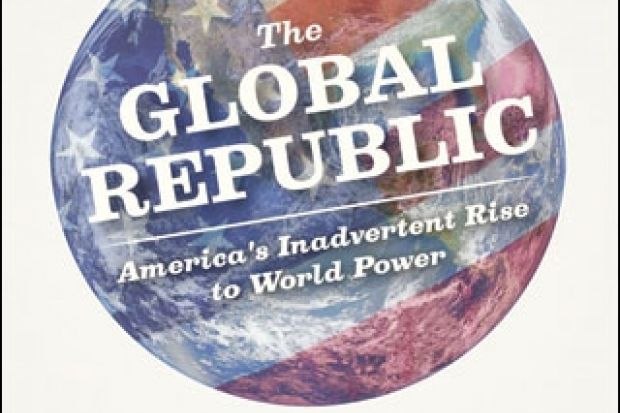Every reader has experienced just such a moment. You finish a book and feel an urgent need to meet the author – over dinner, at breakfast, on the pavement, or stalking the autograph table.
Frank Ninkovich’s The Global Republic is such a book. It illuminates recent events and forecasts trajectories without pandering or prejudice. It eschews cheap shots for subtle insights. It is passionate and dispassionate. It is great history.
The Global Republic tackles an important conundrum. How can we understand America’s role without falling into one of two black holes: namely, vainglorious “exceptionalism” or its opposite, the equally barren notion that the US is an empire? Ninkovich explodes both with the calm of an ordnance expert taking down enemy bridges in the dark.
In America’s first decades, he concedes, the nation was exceptional. It was the only republic that was also a stable democracy, “alone in a world of monarchical empires”. Its founders hoped others might follow, but this depended upon the Enlightenment, “an international cultural process over which the United States exercised no control”.
Yet the world began to change in other ways. Like Neolithic agriculture long before it, the Industrial Revolution crept over the planet, upending folkways and drawing disparate peoples into a vibrant commercial web. Americans became part of the main. Between 1865 and 1940, the US turned away from “standing out” towards “fitting in”. Thanks to globalisation, Ninkovich argues, “the old world was no longer old and the new world no longer distinctively new”. Industrialisation was modern history’s main driver, not the US or any other nation.
Fitting in meant catching up. Teddy Roosevelt, president from 1901 to 1909, became the poster child for a cosmopolitanism that “began to think of the nation as an important member of an emerging international community”. But the country’s native institutions also harmonised with new global practices. America’s outsized domestic market, internal free trade and open borders made it a natural candidate for “the club” of rapidly advancing liberal nations whose honorary chairman was Britain – at least until 1914.
Ninkovich reminds readers that Wilsonianism did not originate in the US. The concept of a “league of nations” had roots that went back at least to Immanuel Kant. (My own research traces them even further.) Alfred Lord Tennyson immortalised the ideal in poetry in 1837. Although he does not, Ninkovich could easily have pointed to British, French and German calls for such a league before Woodrow Wilson’s Fourteen Points statement of 1918. Indeed, Europeans carried the League of Nations long after America rejected the burdens of membership. None of this was made in America.
Ninkovich argues that the great turn came during the Second World War, when Americans had to decide whether or not to rescue a system in which they were not exceptional, yet might have to play an exceptional role to get the world back on its feet. Two oceans gave them a secure perch. But there were existential threats “to an international society that had arisen in the nineteenth century and that was a product of centuries of evolution”. Germany and Japan’s rejection of forms of cooperation that had been progressively “normalized” compelled Americans to ditch their comfortable assumption “that underlying social forces…would push history in a favorable direction”.
Thus, US participation in the Second World War, and leadership during the Cold War, did not arise from a wish for dominance. It was “the product of fear, not ambition”. Put another way: “the United States traded up from a belief in itself to a belief in something greater than itself”. America’s most unique feature, Ninkovich suggests, was its commitment to multilateralism.
He points out, however, that a temporary expedient was gradually routinised. The challenge now is to exit a role that has produced much, but costs much. “Alpinists,” he writes, “do not linger on the peaks that they conquer, for getting to the top is less dangerous than remaining there.” Although its allies might be horrified to see it renounced, American hegemony cannot be a permanent goal.
The Global Republic’s style may sometimes send readers scurrying back over paragraphs freighted with too much material to unpack easily, but they are worth the effort.
Personally, I cannot wait to meet the author. I have made related arguments in my own books, in defiance of the Manichean academic orthodoxy. We have much to discuss. Where is the autograph queue?
The Global Republic: America’s Inadvertent Rise to World Power
By Frank Ninkovich
University of Chicago Press, 368pp, £21.00
ISBN 9780226164731 and 173337 (e-book)
Published 15 September 2014
Register to continue
Why register?
- Registration is free and only takes a moment
- Once registered, you can read 3 articles a month
- Sign up for our newsletter
Subscribe
Or subscribe for unlimited access to:
- Unlimited access to news, views, insights & reviews
- Digital editions
- Digital access to THE’s university and college rankings analysis
Already registered or a current subscriber? Login





